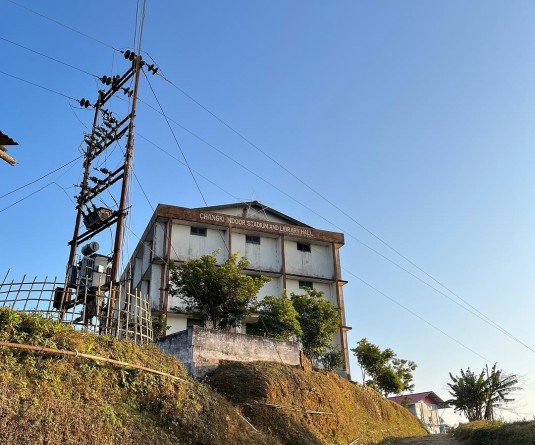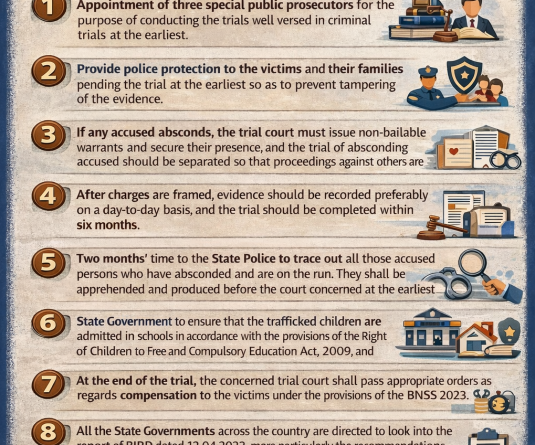
Morung Express News
Kohima | May 5
A legal awareness programme on human trafficking organised by the Nagaland State Commission for Women (NSCW) in association with National Commission for Women, New Delhi was held at De Oriental, Kohima on May 5.
Reaching to ‘un-informed people’
Providing a brief update on the NSCW’s awareness programme on Human Trafficking, Temsula Ao, Chairperson NSCW mentioned that the Commission took up the awareness initiative in all the districts to make aware the issue of human trafficking to the ‘un-informed people’ in remote areas who are often easy prey to the danger of being manipulated by unscrupulous operators with the false promise of a better life outside the villages and towns.
Temsula criticized the poor functioning of government in remote areas where ‘schools exist in name only and other basic amenities do not seem to have reached many of these remote areas’. “Therefore they seem to grab at every little opportunity to let their children go elsewhere to find better lives. What becomes of many of them ultimately ends up as only statistics on some police reports and social grapevine,” lamented Temsula.
Status, problems, nature of human trafficking in Nagaland
While Human trafficking, an organised criminal trade, is expanding at a phenomenal rate, Temsula viewed that the crime is unique because unlike other trades the commodity it trades in is human beings with its primary goals being prostitution or sex-trafficking which affects 4.5 million worldwide.
The Police data indicates that in Nagaland a person goes missing every fourth day where 83 percent are below the age of 18 and 13 percent have been reportedly trafficked, and 35 percent are untraced.
“Such criminal activities cannot be handled by our traditional customary laws because the crimes of such diverse forms can be dealt with only by the present law-enforcing agencies. This is where the role of police needs to be fore-grounded,” stated Temsula. She also cited the problems faced by the Police in tackling human trafficking such as non-reporting of cases, acceptance as social norm, inability to reach out to target audiences from victim groups, ignorance stemming from ambiguity about the incidents and lack of networking.
According to her, the nature of criminal involvement contained in human trafficking is such that no agency single-handedly can cope with its ramification because there are many facets to the crime. Therefore, it can be prevented and contained only with the adequate networking of the police, child rights agencies, labour department, social welfare, mental health and NGOs working in the field. Further the Church also plays a significant role especially in rehabilitation where even the parents of victims need counseling.
“The convergence of these stakeholders as mooted by the police would be the ideal method to prevent and root out the problem before it destroys our youth,” stated Chairperson NSCW.
The need to recognize the other form of human trafficking inside Nagaland where many children from poorer communities are manipulated and lured to become household slaves was emphasized where Ao appealed the society to admit its own complicity in violating another’s human rights.
Rehabilitation of victims
Nienu, Member Secretary, Nagaland State Legal Services Authority in her speech laid stress on rehabilitation of the victims in order to get them back on track with society and especially the roles that women’s groups can play in the prevention and rehabilitation of victims. Sensitivity towards the victim is important, mentioned Nienu while adding that society often tends to stigmatize the victim.
“Special Homes for the victims needs to be set up. The importance on reporting the cases needs to be encouraged because unless the case is reported, solutions are unlikely to happen,” said Nienu informing that there are very few rehab centers in Nagaland and most districts do not have special homes for the victims.
Legal aspect of human trafficking
Khriesinuo Kire Legal Consultant, NSCW spoke on the legal aspect of human trafficking where she highlighted the penalties and punishment of human trafficking under the Immoral Trafficking (Prevention) Act of 1956.
While emphasizing on the sexual exploitation of human trafficking, Kire mentioned that sexual exploitation is not just attempted on girls and women but also on men and boys and because the Naga society is not fully aware on the crime of human trafficking, many cases goes unreported. Human trafficking has become and organised institution which has crept into our Naga society where commercial sex workers and incidents of Naga boys and girls are trafficked to other states and forced into prostitution. The initial recruitment, Kire mentions, is done with the help of local agents/advertisements for employment and training assuring good salaries.
“Though the government in association with NGOs is taking steps to improve the situation, it is not enough. We need to take up community surveillance which will help check ongoing trafficking activities,” asserted Kire.
Suggestions
The Speakers suggested various initiatives to prevent human trafficking such as launching of an effective strategy through convergence of allied departments to be structured and put in vulnerable areas after careful assessment of the ground realities. Suggestion of preventive measure of creating a data bank in police archives, profiling of vulnerable areas, groups and communities, analyzing contents of advertisements and social media, tracking suspects, maintain checks on transport routes, using source information, were also highlighted.





